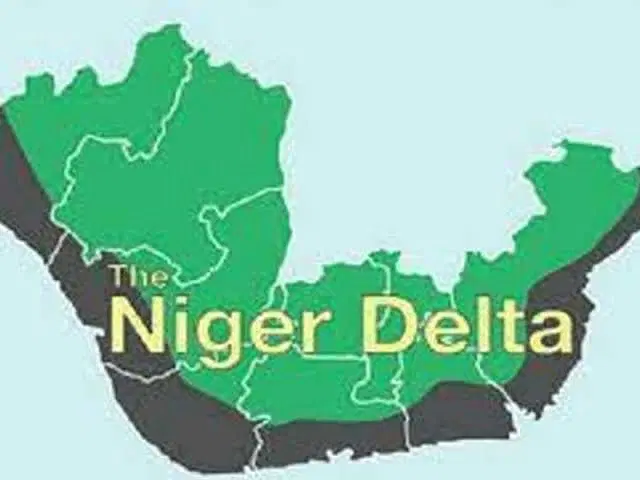NIGER DELTA: Is the struggle for resource control dead? By Abai Francis

Once upon a time in the Niger Delta region—an oil producing area in southern Nigeria, West Africa—the voices of "resource control" was deafening, with almost all major and splinter groups in the region pushing for the adoption of the concept that is closely linked to fiscal federalism. However, like a fire inferno that went turkey after being poured cold water, the region has suddenly gone quiet over its clamour for the control of their God-given resource.
Resource control, which involves the distribution of revenue and responsibilities among the different levels of government, which in Nigeria involves Federal, State and Local, in practical terms, simply refers to the sole ownership and control of resources by inhabitants of where the resource is found, with the owner paying tax to the central government. However, with the promulgation of the Land Use Act, the government solely claims ownership of all lands and the natural resources found in them, thereby depriving inhabitants or settlers from benefitting directly.
The clamour for resource control seems to have stemmed from abject poverty, especially as inhabitants of oil and gas producing areas suffer harshly and unjustly from the environmental effects of pollution that destroyed their natural habitat, and that posed challenges to the traditional occupation of fishing, farming and other activities prone in the area.
Meanwhile, in the midst of their travails, the federal government was earning massive revenues through royalties and other forms of taxes. As if that was not enough, these revenues were hardly ploughed back in the region into building the needed infrastructures that would in turn create jobs for the unemployed and ease the hardship of living in their God-given territories labelled as a "disadvantaged area"—a term that arose from claims that the coastal areas in the region are difficult to develop!
The battle for resource control in the region went from peaceful agitation in the 80's to violent conflicts in the 90's which greatly impacted on oil production, affecting revenues accruing to the federal government. The restoration of fragile peace in the region led to the establishment of regional agencies and commissions by the federal and state governments, in the likes of the Niger Delta Development Commission (NDDC), and for oil producing states like Delta State, the Delta State Oil Producing Areas Development Commission (DESOPADEC).
Sadly, despite the creation of these agencies and commissions, the problem of poor infrastructures in oil and gas producing areas has not been addressed, due to the politicization of the Niger Delta problems and corrupt practices by politicians and government officials in collaboration with the supposed leaders in the region. Evidently certain classes of people in the region have turned the problems of the region into an avenue for self-enrichment. An established pattern displayed by these supposed set of leaders is one that, once the government of the day dances to their tunes, the pains of the masses do not matter to them any longer. Moreso, these group of persons love to show-off their riches and wealth in frivolous manners that are not productive, but in such a way that gives them away as myopic and having a mentality that is associated with waste and consumption-focused.
It is this type of showcased mentality that has made some persons to believe that the clamour for resource control in the first instance, though it began with genuine intent, will not benefit the common citizens in the region if it becomes a reality. This school of thought lend their credence to the current state of the 13% derivation fund which has been hijacked by certain class of leaders, who wield authority and power, preventing the direct beneficiaries from benefitting.
However, the stark truth remains that resource control should be a reality. For justice and equity to prevail, there should exist a practical framework that would ensure the wealth of the people are not concentrated in few hands in practical terms when the clamour is achieved. Moreover, advocating for resource control is the only panacea to the positive transformation of the creek areas which form the primary bulk of oil exploration activities as the areas require special and massive funding.
As the world moves from fossil fuel to cleaner energy, the need to actualize resource control becomes more imperative. And so, the clamour for resource control should not only gather momentum or be pursued sentimentally when an opposition government is at the helms of affairs, but it should rather be in the interest of justice and equity for those who suffer the most from exploration activities. And the agitators of resource control should never lose focus of this truth!
#penglobaldiscourse #resourcecontrol #NigerDelta



